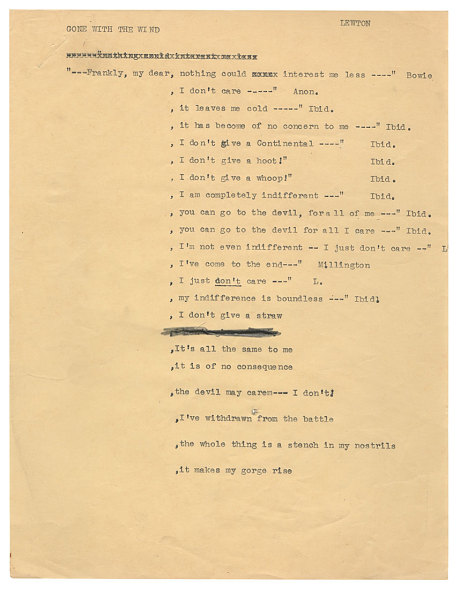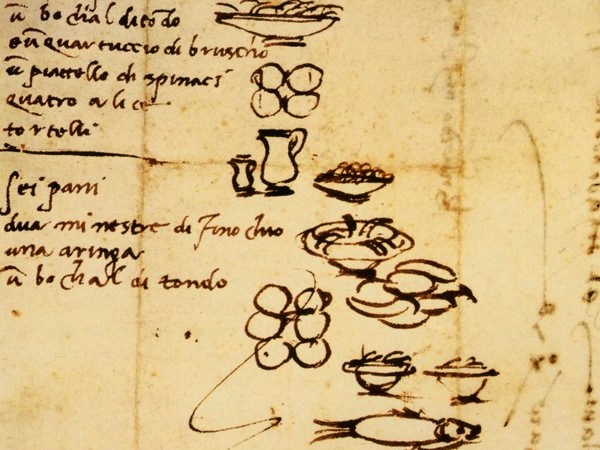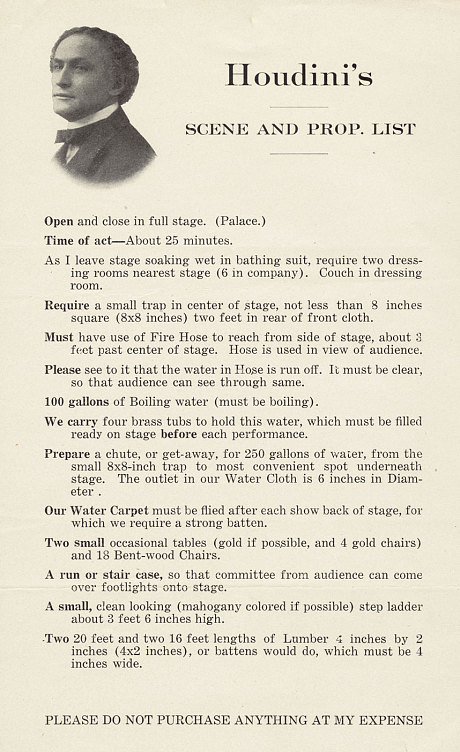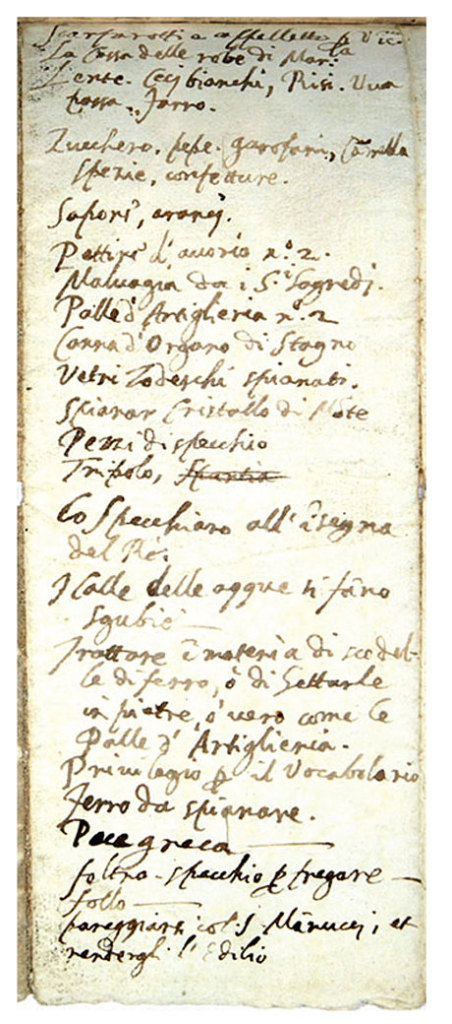Human beings love making lists. Lists have permeated our culture, they help us organize our thoughts, help us remember thoughts for later, and generally minimize the chaos of human lives. The exact origin of the word list is unknown, but it can be traced back to a Germanic word meaning pleasure, a telling connection in history. It makes sense that creating lists would bring us pleasure. A world without these curious moments of organization would mean that not a single shopping list, dictionary, address book, or to-do list would exist. Most importantly however, lists help us better understand the truths of our minds, becoming an interesting part of our history. We remember the great and wonderful things people have done in history, but what can we learn from the lists they make?
The list above is one of Michelangelo’s shopping lists. He would write out the name of the item, then draw a picture to accompany it so that his illiterate servant could find it and perhaps learn at the same time. Here are some more of Broad Street’s favorite lists:
 Few lines in cinema history can compete with Gone With The Wind’s Rhett Butler’s reply to Scarlett O’Hara’s frantic question, “Where shall I go? What shall I do?” His answer, the curt “Frankly, my dear, I don’t give a damn” is as famous as the movie itself. But the line was close to never happening. Just two months before the film was due to release, it was deemed that the word damn to be offensive and called for it to be removed. Although the decision was reversed a few weeks later by the board of the Motion Picture Association, the Gone With The Wind crew listed a few alternatives, just in case.
Few lines in cinema history can compete with Gone With The Wind’s Rhett Butler’s reply to Scarlett O’Hara’s frantic question, “Where shall I go? What shall I do?” His answer, the curt “Frankly, my dear, I don’t give a damn” is as famous as the movie itself. But the line was close to never happening. Just two months before the film was due to release, it was deemed that the word damn to be offensive and called for it to be removed. Although the decision was reversed a few weeks later by the board of the Motion Picture Association, the Gone With The Wind crew listed a few alternatives, just in case.
The great Harry Houdini was a master magician who specialized in escaping out of incredible predicaments.This is the list of necessities for his most famous act, “Houdini Upside Down!”, in which he would hang in a foreboding looking device called the Chinese Water Torture Cell. He would be underwater and upside down, then break free in an astonishing flourish. For 14 years, before every show, this intricate list would be provided to the stagehands of the venue.
Here is a page from one of Galileo Galilei’s notebooks. The famous anstronomer lists out the important supplies that he needs for a science experiment. He was working to perfect the lenses on a telescope, but among the list of important equipment he sprinkled in other home necessities. Even the secrets of astronomy can wait until the problems at home are settled. His list includes:
Shoes and hat for Vincenzo.
The case of wares for Marina.
Lentils, white chickpeas, rice, raisins, spelt.
Sugar, pepper, cloves, cinnamon, spices, jams.
Soaps, oranges.
Two ivory combs.
Two artillery balls.
Organ pipe of tin.
German lenses, polished.
Have rock crystal polished.
Pieces of mirror.
Small iron tuning chisels made in the Calle delle
Iron plane.
Greek pitch.
Felt, mirror to rub.
Wool.
Pay debts to Lord Mannucci and give him back the Edilio.
Broad Street’s Hunt | Gather issue features a photographic collection of lists compiled by Michael Hearst that celebrates this centuries-old tradition of everyday gathering. Gregory Maguire, Susan Duerden and Joe Beshenkovsky are among the featured list-creators.











